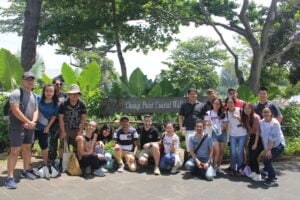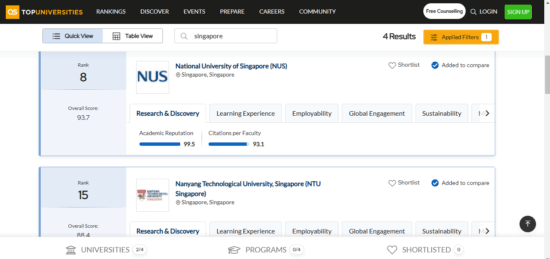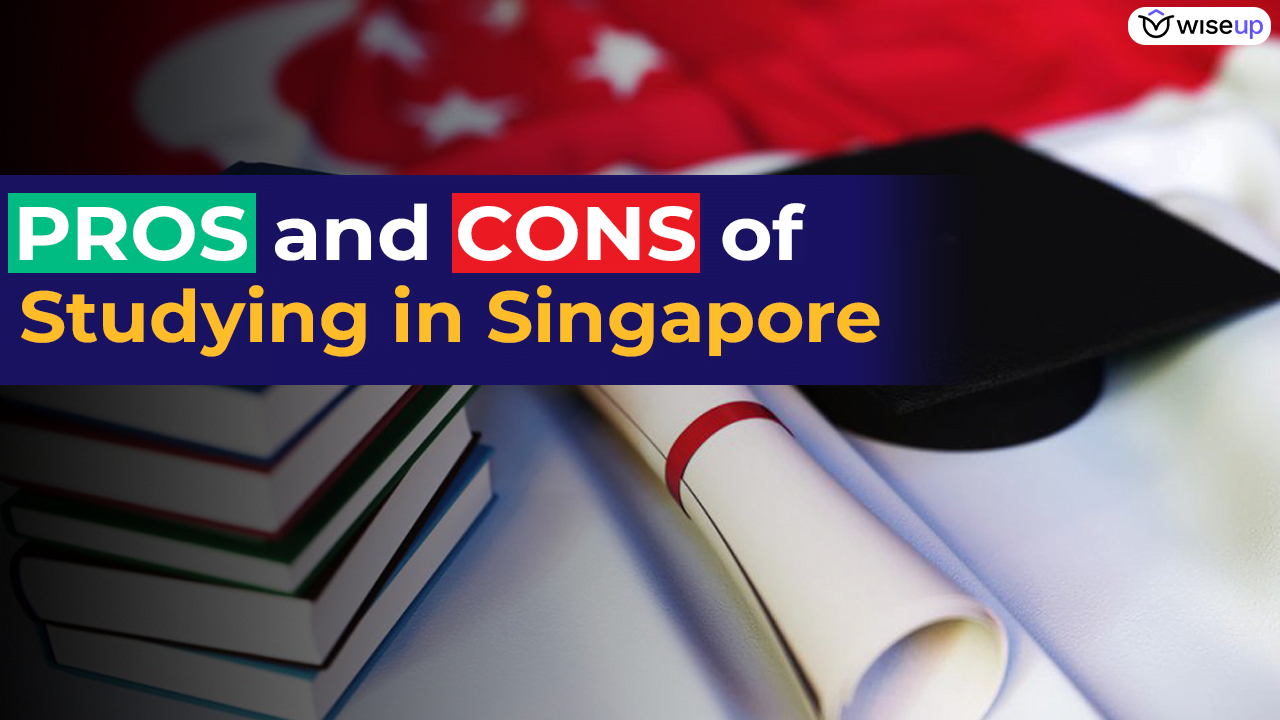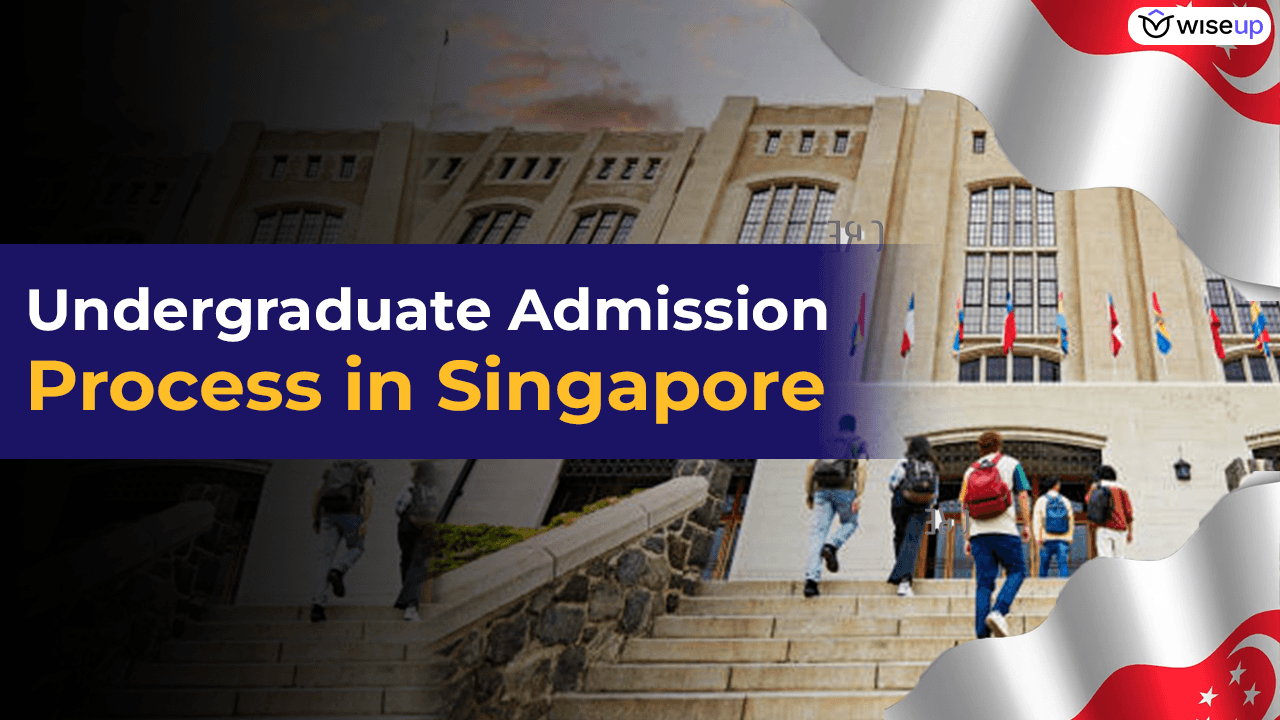Hi everyone, I’m Neha Agrawal, founder of WiseUp Communications and an alumna of NTU Singapore. In this blog, I’m sharing my firsthand experience of studying and working in Singapore. We’ll dive into the pros and cons of studying in Singapore, offering you valuable insights to help you make an informed decision about pursuing your education there.
Let’s first look at the different pros of studying in Singapore which makes many students pursue their education here.
1. Home to some of the top-ranked universities
Singapore hosts some of the world’s top-ranked universities like NUS, NTU, SMU, SUTD, and INSEAD. With state-of-the-art infrastructure, world-class faculty, and cutting-edge research facilities, these universities offer an up-to-date curriculum that prepares students for successful careers.
Have a look at the amazing SMU, Singapore Campus:
2. Affordable education
Compared to popular countries like the US, studying in Singapore is definitely more affordable. Tuition fees are roughly 30% lower, making it an attractive option for expensive programs like a four-year undergraduate degree or an MBA.
For undergraduate or postgraduate research programs, you can also opt for the Service Obligation Scheme, which reduces your fees by nearly 50% in exchange for working in Singapore for three years after graduation.
To know about the various scholarship options, check out the video below:
3. Ease of getting the VISA
Once you’re admitted to a university in Singapore, the university handles the entire visa application process, and you’re almost guaranteed to receive your visa unless there’s a significant issue.
This is a big advantage compared to other countries where the visa process can be complicated, requiring applications, interviews, and uncertainty even after securing a university admission.

4. Presence of global companies for job opportunities
Singapore serves as the Asia-Pacific headquarters for numerous multinational organizations like Google, Facebook, and Citibank.
Additionally, the startup culture in Singapore is thriving, with companies like Grab, FoodPanda, and Lazada actively hiring young talent.
Graduating from a university in Singapore opens doors to opportunities with global giants as well as some of the most innovative startups.
Have a look at the amazing Google Singapore Office:
5. Amazing international exposure
One of the key reasons for studying is to interact with people from diverse nationalities, and learn about different cultures. Singapore offers exactly that.
You’ll meet individuals from China, Malaysia, the Philippines, Thailand, Indonesia, Korea, and other Southeast Asian countries. The people are welcoming and inclusive, making it easy to become part of their community.

Now, I will give you an honest view about the cons of studying in Singapore:
1. You don’t have too many university options
Beyond the top 5 universities mentioned, there are other universities in Singapore, but they generally don’t feature in global rankings or hold significant reputations.
This means that when applying to study in Singapore, it’s wise to consider other countries as well. You can see in the below screenshot that for science, apart from NUS and NTU, no other university appears in the QS World University Rankings.

2. Not many scholarship options
In addition to the Service Obligation Scheme, there are a few other scholarships available in Singapore like the US, but they are not easy to obtain.
However, this is quite different from studying in countries like Germany and other European nations, where numerous scholarship options make education much more affordable.
3. Difficult to get a PR
While obtaining PR and citizenship in countries like Canada and Germany is relatively straightforward, it’s become increasingly challenging in Singapore.
Many of my friends who have lived in Singapore for 5-6 years and worked there for 4 years but still haven’t secured PR.
Additionally, if you plan to bring your spouse to Singapore, they would need a dependent pass, which requires a high salary—a threshold that many people struggle to meet.
You can check out the video below for more details:
4. There aren’t many job options
Due to Singapore’s small size, the number of companies is limited. This leads to intense competition among graduates for the same positions.

Unlike larger countries like the US or Germany, where there are numerous job opportunities even outside top companies. Singapore offers fewer options, making it more challenging to secure a job
5. Exposure is limited to South-East Asian Culture
You won’t find many students from Europe or the US studying in Singapore—just a handful at most. This means your exposure will primarily be to Asian culture, food, and traditions rather than a global mix.
Personally, I didn’t see this as a downside. Studying in Singapore deepened my appreciation for Asia and highlighted the similarities between Indian and Southeast Asian cultures.
So guys, this is the PRO and CON list that we wanted to share with you about studying in Singapore. Read them and make a more informed decision.
If you want to know more about studying or working in Singapore, you can go through our other Singapore Blogs!
If you have any questions, you can also connect with Neha over a 30 minute 1-1 consultation session – Singapore Consultation
For any queries, feel free to comment and we will try to get back to you at the earliest! 🙂 All the very best for your careers ahead!




